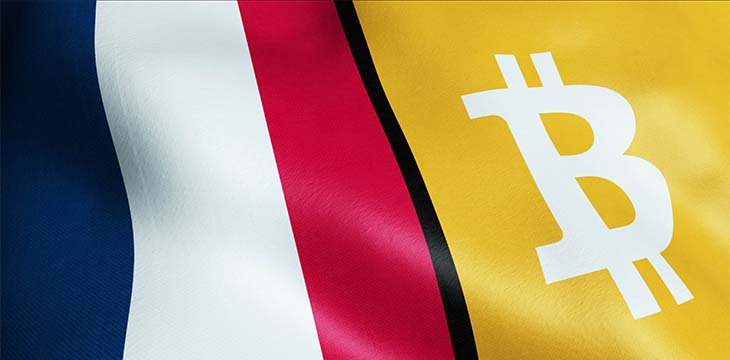|
Getting your Trinity Audio player ready...
|
French Finance Minister Bruno Le Maire revealed that France has made significant progress in becoming a virtual currency hub for investors and market operators.
In an interview with local news service BFM TV, Le Maire said that the government will not be resting on its previous accomplishment but will introduce new reforms to improve the sector. Top of the list for the government is the introduction of a new tax regime for digital assets that will operate differently from stocks.
The finance minister noted that the current administration would regulate the industry without the fear of innovation, competition, and decentralization which he says could “suffocate” the entire industry. He added that despite leaning toward virtual currencies and distributed ledger technologies, operating without central banks or borders could plunge global systems into chaos.
Over the last few months, favorable regulations and minimal taxes have lured digital asset exchanges to France. Binance and Crypto.com have set up shops in the country, and Le Maire expects more firms will follow.
“Here, too, our regulations, combined with our many talents, are a pillar of our attractiveness,” said Le Maire. “I am proud that we have thus, in just a few months, attracted two of the world’s largest platforms to Paris.”
Binance stated that it was considering making France its global headquarters and even made a multi-million-dollar investment to strengthen its position in the country. However, Le Maire notes that it will not be a hindrance to other competing firms and will attract even bigger companies with “rigor, realism, and pragmatism.”
Not totally a bed of roses for digital assets
Although the finance minister had glowing comments on the state of the industry in France, some statements may have left a sour taste in the mouths of enthusiasts. For instance, when asked about the potential use of BTC as a currency, he noted that “our currency must remain the euro.”
On the issue of mining, Le Maire expressed concern about the environmental impact of Proof-of-Work virtual currencies and pointed out that it remains the government’s responsibility to reduce its carbon footprint.
France’s attempts to get ahead of the pack in terms of digital asset adoption may face stumbling blocks due to the European Union’s Markets in Crypto Assets regulation (MiCA). Le Maire hopes to gain a headstart in areas not governed by the MiCA, like non-fungible tokens (NFTs) and decentralized finance (DeFi).
“There will always be a time lag in innovation regulation. It is a constant in societies open to progress,” said Le Maire. “The key is to be aware of this and to ensure that regulations do not seek to stifle innovation.”
Watch: The BSV Global Blockchain Convention panel, Blockchain for Digital Transformation of Nations

 02-16-2026
02-16-2026 




